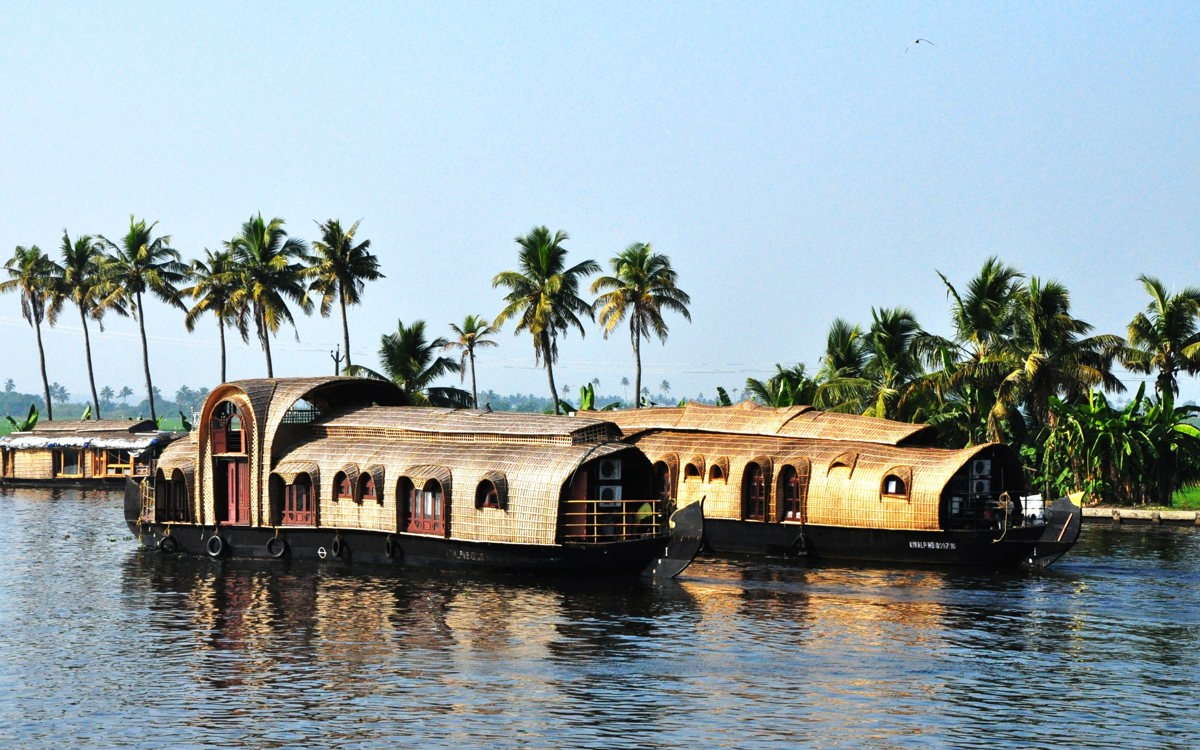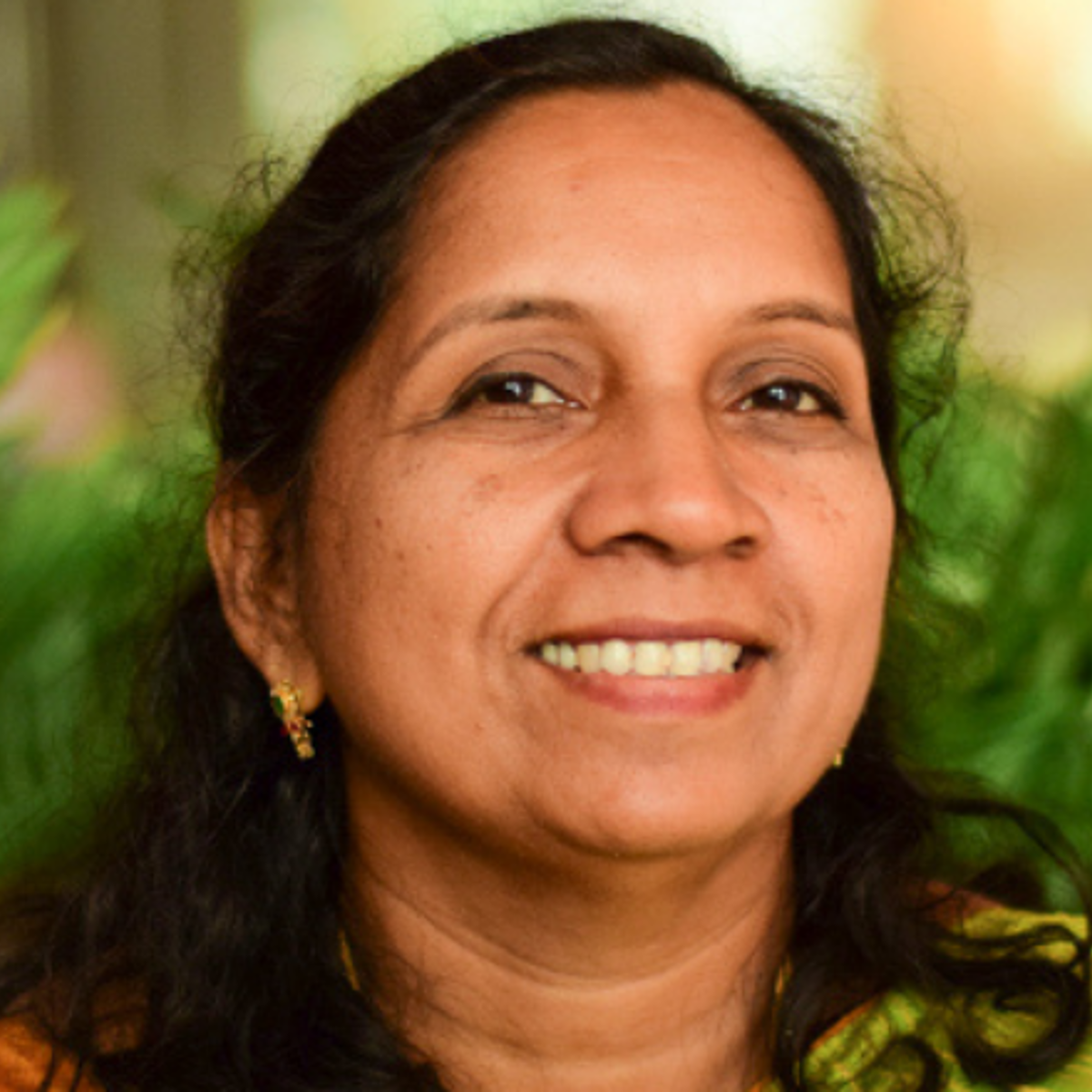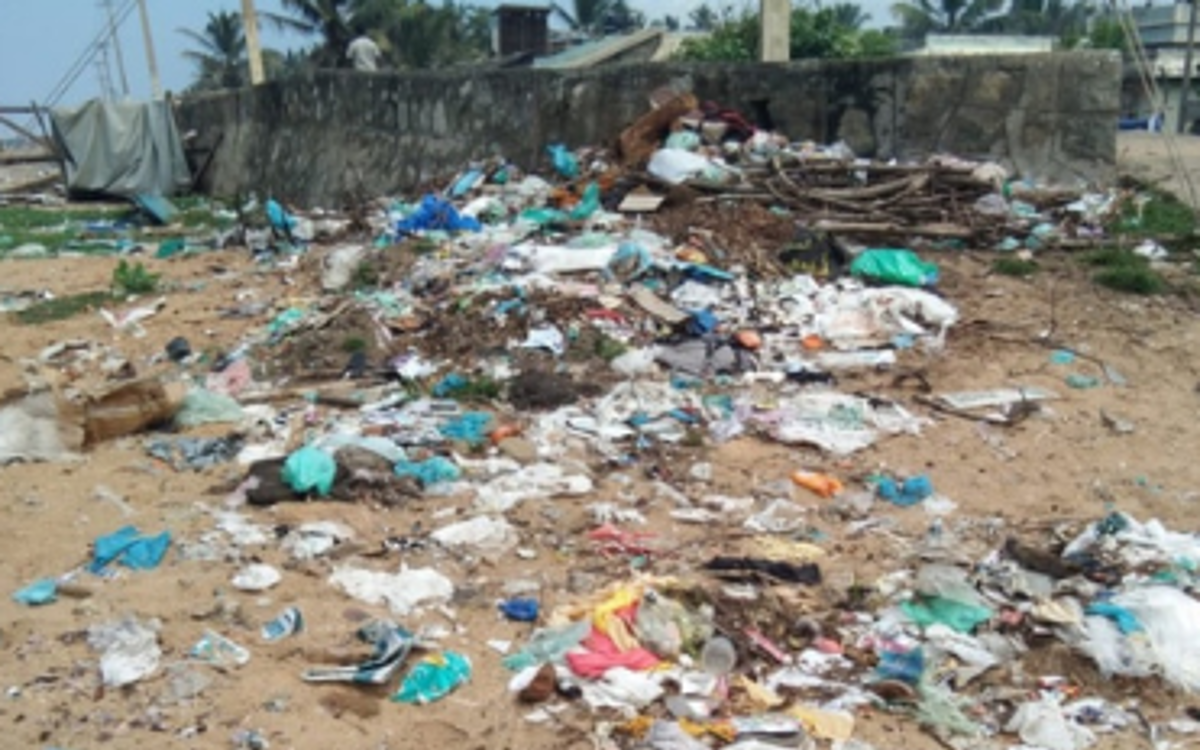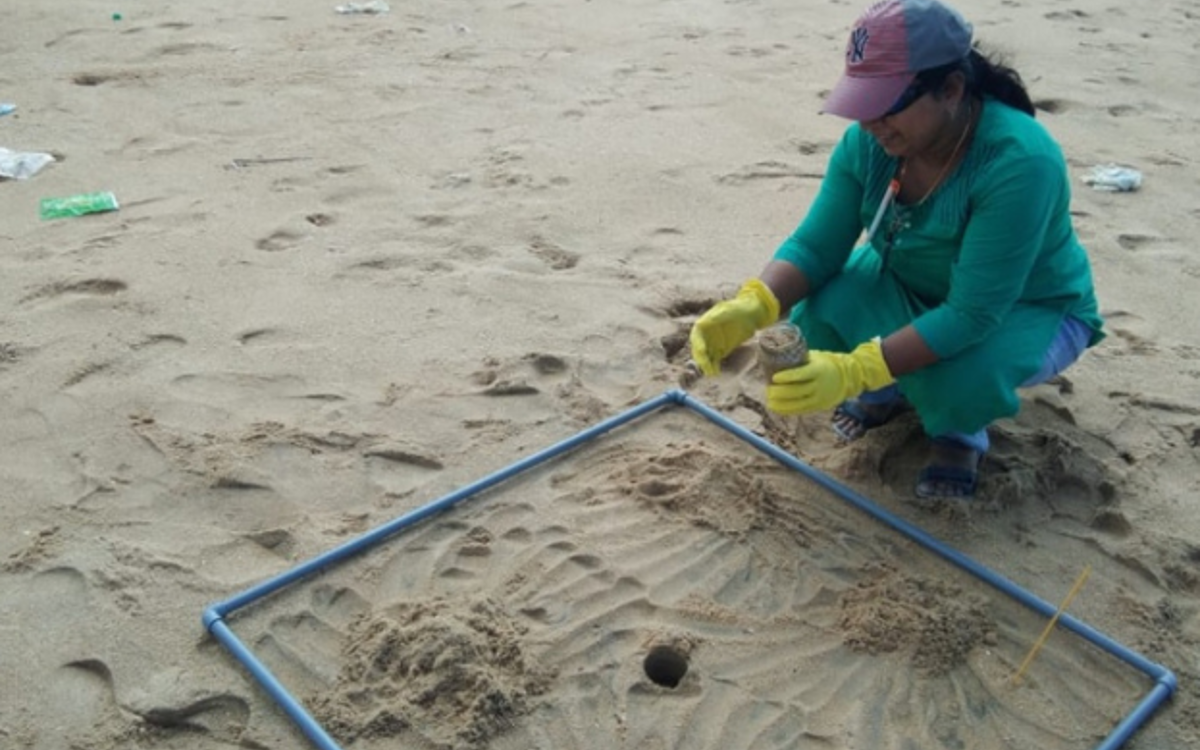By Dr Salom Gnana Thanga Vincent


Dr Salom Gnana Thanga Vincent
It is the unrivalled beauty of Kerala’s natural landscapes that gives the Indian state its nickname ‘God’s own country’. But behind picturesque coasts, local people are grappling with unchecked plastic waste accumulation.
At the University of Kerala, professor and Blue Charter alumna Dr Salom Vincent is tackling this big challenge from the bottom up. ‘I used to go to the beaches for relaxation as well as research,’ Salom recalls. ‘But most of the time we can observe that coastal environments are the victims of solid waste disposal, in the form of open dumps. There are no proper policies to manage plastic waste, and this continues without any further checks.’
Kerala’s intricate network of rivers and streams are being choked by plastics. The damage on the local environment and economy has been evident, and in a storm-prone region, clogged waterways can lead to heavy human costs.
Witnessing the growing plastics crisis, Salom – a biologist by training – applied for a Blue Charter Fellowship to pursue marine plastics research in search of solutions.
Crossing borders and breaking silos
‘I was very keen to work on issues of plastics on coastlines, as coastal biology is my area of expertise,’ Salom explains. She had been seeking international collaborations for a few months before she was awarded a Blue Charter Fellowship to the University of Newcastle in Australia.



For her Fellowship research, Salom surveyed microplastic samples from Kerala’s beaches, covering some 70 kilometres of coastline to collect samples which she then analysed to establish baseline data. Six months into the programme, Salom had already published several papers, contributed to book chapters, and formed lasting connections with like-minded scientists from Australia and the UK.
‘There were a lot of knowledge exchange discussions and field visits during the Fellowship,’ Salom recalls. ‘This impacted me, because I got a lot of information working with my hosts and made connections that are being continued. We shared ideas on how we can make the research more in-depth and looked at issues from a holistic perspective with different horizons.’
Salom and her hosts also formed a research team and secured grants to develop two new Indo-Australian research projects on marine plastics.
From knowledge to impact
Reflecting on these achievements, Salom believes that her work is first and foremost about bringing people together to find solutions for real life problems.
Upon Salom’s return to Kerala, she began engaging political stakeholders to implement change. Existing grassroots initiatives for plastics management presented a good opportunity for impact. One such programme – the ‘Clean Sea Mission’ –mobilises fishermen to bring plastics back from the sea to designated shops for processing, recycling, reapplication, or conversion into road pavers. Local women’s self-help groups were also involved in sorting the plastics.
Aided by a Blue Charter knowledge exchange grant, Salom chaired a meeting with municipal representatives, including a mayor and delegates from the state pollution control board and fishing ministry, to discuss scaling up the initiative to increase impact.
‘We had a fruitful discussion, and we are now planning to have a large-scale environment programme for all the fishermen who are participating in this venture,’ Salom says. ‘We are thinking of deepening this existing programme and expanding to more people who can collect even more plastics from the ocean.’
While COVID-19 put a lot of her plans on pause, Salom hopes to conduct further community mobilisation work once restrictions ease.
‘In India, there’s not much marine plastics research compared to other countries, so this work should be brought forward,’ Salom says. ‘Now, research outcomes on marine plastics are increasing. We should bring together more people of the same interest in a platform, to produce more solutions for the environment.’
Big changes start small
Today, Salom is guiding several research students at the University of Kerala who became interested in working with marine plastics under her wing.
‘The good work is continuing,’ she smiles. She remains in regular contact with her hosts at the University of Newcastle. Between the two institutions, Salom played a key role in establishing a marine plastics research group which supports regular networking, discussions, and collaborative workshops between research students in India and Australia.
While Salom’s ultimate vision is to fill Kerala’s waste policy gaps, big changes often start small. She and her students are currently developing a waste management plan for Kerala University, which can be extended to other campuses and ultimately to cities.
‘We have a good vision for the coming years, particularly with our students forming a research group to work on this,’ Salom says. But she reminds us that researchers must not stop at publishing papers or teaching.
‘Scientists have to start from finding the source of the problem to the solution – they must go all the way.’
The ACU Blue Charter Fellowships Programme (2019-20) was funded by Waitrose & Partners.
The programme builds upon the successes of the first cohort of Blue Charter fellows (2018-19) funded by the UK Department for Business, Energy, and Industrial Strategy, and forms part of the Commonwealth Marine Plastics Research & Innovation Framework – a global hub which aims to share scientific and technical expertise in this vital area – in support the aims of the Commonwealth Blue Charter.
